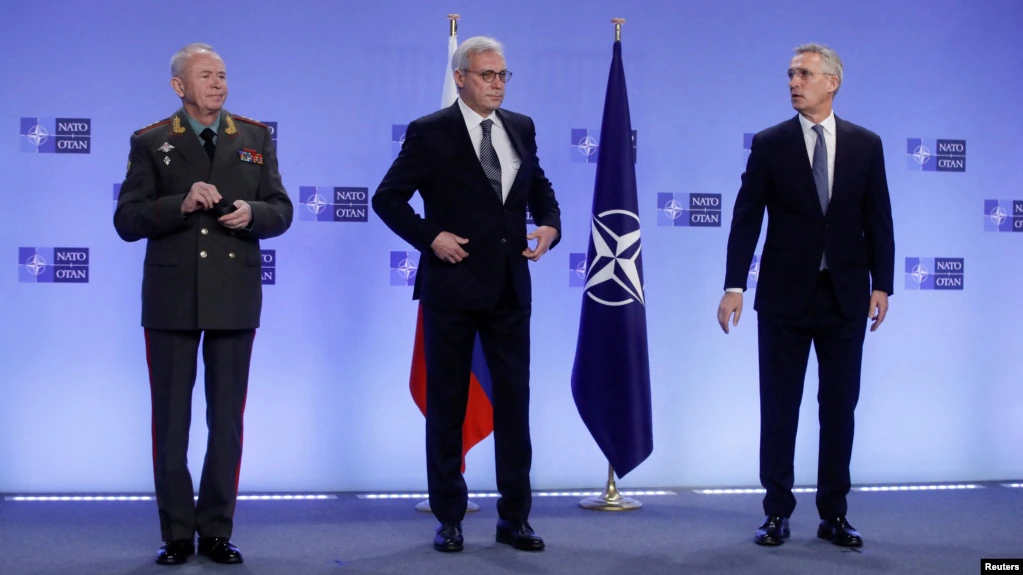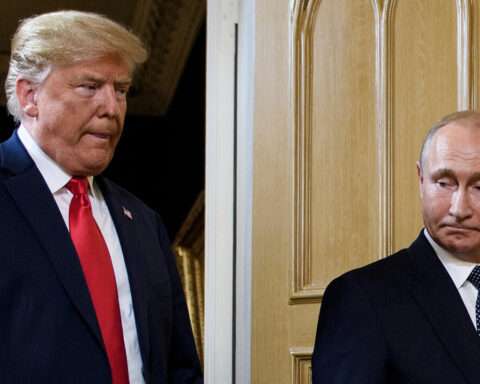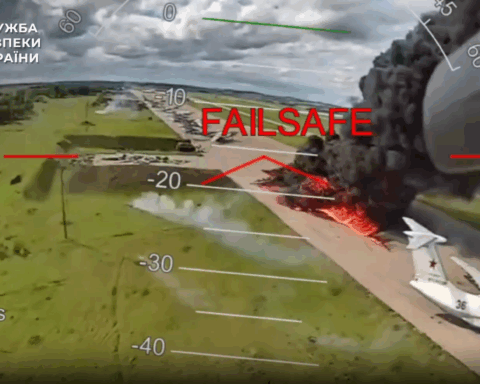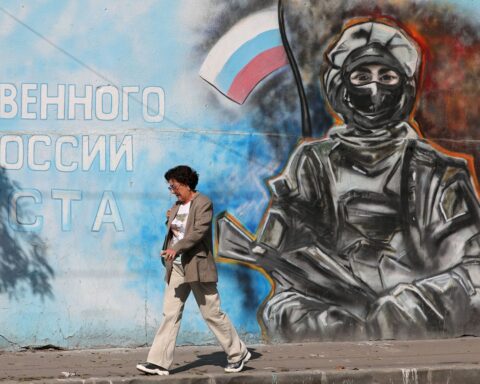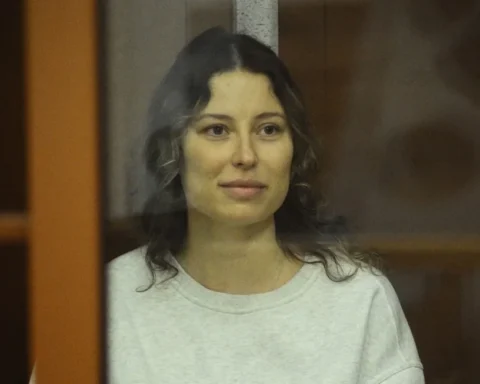High-level security talks between NATO and Russia to address a brewing crisis on Ukraine’s eastern border have begun at the alliance’s headquarters in Brussels amid low expectations for a breakthrough.
The January 12 meeting between representatives of the alliance’s 30 members and Moscow’s envoys is taking place under the framework of the NATO-Russia Council, the first time the group has met in more than two years.
It is the second round of high-stakes diplomacy this week following an initial meeting between U.S. and Russian negotiators in Geneva on January 10 that proved inconclusive.
NATO Secretary-General Jens Stoltenberg tweeted that “it is a timely opportunity for dialogue at a critical moment for European security. When tensions are high, it is even more important that we sit down around the same table and address our concerns.”
Stoltenberg and the leaders of the Russian delegation, Deputy Foreign Minister Aleksandr Grushko and Deputy Defense Minister Aleksandr Fomin, posed stern-faced for the media before the start of the meeting.
Deputy Secretary of State Wendy Sherman, the top U.S. negotiator at the Geneva talks, is also taking part in the meeting in Brussels as the leader of the U.S. team.
Grushko has described the meeting, which is expected to last for about three hours, as “a moment of truth” in Russian-NATO relations.
Kremlin spokesman Dmitry Peskov reiterated that Russia, while not issuing ultimatums, remains concerned about the Western alliance’s possible enlargement.
“Of course, Russia is concerned over any NATO expansion. NATO is not an instrument of development, it is an instrument of confrontation,” Peskov told journalists in Moscow.
The NATO-Russia Council was set up two decades ago but full meetings were suspended after Russia seized Ukraine’s Crimean Peninsula in 2014. The council has met only sporadically since, the last time in July 2019.
At the top of the agenda are the Kremlin’s troop buildup near Ukraine and concerns that Russia could be preparing to launch a fresh incursion into Ukrainian territory.
Moscow has amassed nearly 100,000 troops near the border with Ukraine and in occupied Crimea in what the United States has said could be a prelude to an invasion.
Western officials and analysts say Russia’s buildup is an attempt to pressure the United States and European allies to make concessions.
The NATO-Russia Council meeting will consider Moscow’s demand that NATO commit to ending its eastward expansion and roll back advances it has made in Central and Eastern Europe since the 1990s.
While expectations are low, NATO is hoping to draw Moscow into a sustained dialogue and stave off military escalation. Stoltenberg said this week that a good outcome would be an agreement for further meetings.
U.S. Ambassador to NATO Julianne Smith said on January 11 that not a single NATO ally was willing to negotiate anything related to NATO’s open-door policy. The allies have long insisted that NATO membership is a matter for sovereign states to decide for themselves.
Smith described the broad themes of the January 12 talks as “risk reduction, transparency, arms control, and various ways in which we communicate with each other.”
She said that while NATO was “committed to a meaningful reciprocal dialogue with Russia,” the alliance at the same time stood united “to deter threats against NATO allies and further Russian aggression against our partners in Europe.”
Ahead of the meeting, Sherman rallied NATO allies after her conversations with Russian Deputy Foreign Minister Sergei Ryabkov.
“The United States is committed to working in lockstep with our allies and partners to urge de-escalation and respond to the security crisis caused by Russia,” she said.
After more than seven hours of negotiations in Geneva, the Russian and U.S. officials both offered to keep talking, though there was no breakthrough.
Kremlin spokesman Dmitry Peskov said on January 11 that the U.S.-Russia talks were open and direct but did not lead to any progress on issues that Moscow deems urgent.
“We see no real reason to be optimistic so far,” Peskov said.
Russia will be represented at the NATO-Russia Council meeting by Deputy Foreign Minister Aleksandr Grushko, who has described the meeting as “a moment of truth” in Russia-NATO relations.
Speaking after the January 10 talks and ahead of his return to Brussels, Grushko said Russia would demand a comprehensive response to its demands.
“We will push for a concrete, substantive, article-by-article reaction to the Russian draft agreement on guarantees,” he added.


